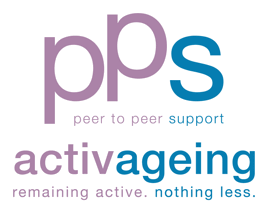About project
Grundtvig Multilateral Project - »Peer to Peer« Support Fostering Active Ageing
The consortium of Grundtvig Multilateral Project Peer to Peer Support Fostering Active Ageing consists of organizations and institutions from six different European countries, namely Denmark, Poland, France, Spain, Austria and Slovenia. The partners are engaged in relevant activities such as the University for Third Life Period, exploring health and care for the elderly and are dealing with adult education and development of educational programs for this particular target group. All partners are therefore dealing with education, health care and with improving the quality of life of older adults.
The purpose of the project is to work in the field of active ageing, because life expectancy in Europe is getting longer and we have many people who have already achieved well-deserved retirement, but are still youthful, active and vital.
The emphasis is on understanding of the concept of active ageing, desires and needs of the target group in terms of acquiring new skills and improving physical and mental health. To this end, in the introductory phase of the project the partners have developed a questionnaire for researching the state of the field and the attitude of older adults towards active ageing, exploring their views on life, quality of living and financial capacity, problems, challenges and benefits of living in a mature age, and, most importantly, which skills do older adults want to acquire in order to further improve the quality of their life.
Surveys were carried out in all partner countries. Based on evaluations and results partnership wants to develop appropriate educational programs aimed at the older adults (55+) for active ageing. It should be noted that the response to the survey was truly remarkable: we have managed to acquire more than 600 fulfilled questionnaires from older adults in all partner countries. Participation in the survey is already far bigger than we originally anticipated, which clearly shows that our project activities respond to real problems and needs of the older people.
In order to truly achieve the widest possible range of desired population, partners performed also personal interviews with the participants in the form of video and audio format. At the same time we have also conveyed desk research, in which partners explored the field of active ageing in Europe, especially the most recent literature and contemporary approaches and best practices that address the challenges of active ageing. In accordance with the desired educational topics partnership will train facilitators (mentors, peers), who will be passing adequate knowledge on to others. Facilitators will be mainly chosen from the same age group as the included participants. We aim at the retired experts in various fields of knowledge - hence the name of the project Peer-to-peer: selected and trained facilitators will help engage and educate the older adults from their own generation.
Education Peer to Peer - through personal contact - can be interpreted as a process through which well-trained and motivated facilitators educate participants of (mainly) the same age, social position or have the same ability as the latter, with the aim to further develop participant’s skills and knowledge.
Educational program for active ageing will take place at two levels: with a) the classical method (learning in class/group) and b) distant educational program (virtual classroom), which will be freely available online and thus accessible to the widest number of people.
Of course, educational program (in pilot version for the needs of validation) will be carried out in all partner countries with the same contents for all, but partners have decided to take into account also the national specifics and prepare 2 “national” modules, according to the results of the survey and the needs of residents in partner countries.
We wish to emphasize that participation in educational program for active ageing for older adults is based solely on a voluntary basis and is free of charge.
The project work started in April 2014, the project runs until 2016 and is funded by the EACEA (European Agency for Education, Culture and Audiovisual Media) of the Lifelong Learning.
Details of the project can be found at www.activeageingproject.eu.

